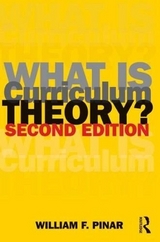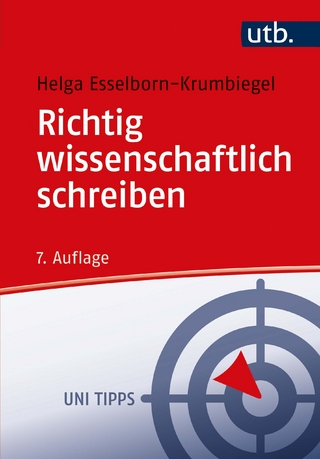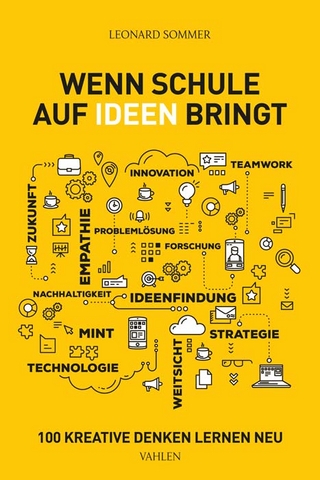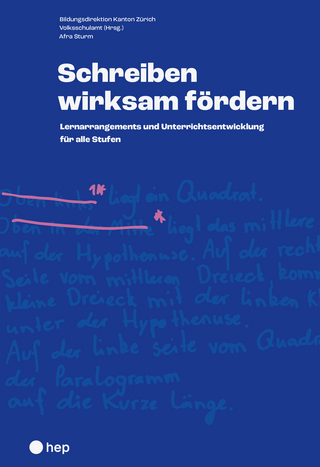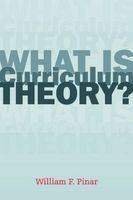
What Is Curriculum Theory?
Lawrence Erlbaum Associates Inc (Verlag)
978-0-8058-4828-1 (ISBN)
- Titel erscheint in neuer Auflage
- Artikel merken
Within this framework, Pinar offers a compelling interpretation of contemporary "school reform" policies and practices, and an explication of curriculum theory's power to bring forth understanding, resistance, and change. His argument is this: Public education today is dominated by a conservative agenda based on a business model of education focused on the "bottom line" (test scores). The origins of this agenda go back to the 1950s, when gendered anxieties over the Cold War and racialized anxieties over school desegregation coded public education (not for the first time) as "feminized" and "black." The nature of many politicians' and some parents' criticisms of public education is intelligible only as a recoding of these gendered and racialized anxieties, deferred and displaced from their originating events onto "school reform." This has rendered the classroom a privatized and racialized domestic sphere which politicians--mostly (white) men--endeavor to control, disguised by apparently commonsense claims of "accountability." What is dangerously at stake is academic freedom and control of the curriculum--what teachers are permitted to teach, what children are permitted to study.
This text offers both an understanding of the problem and a way to address it. Pinar uses the concept of currere--the Latin infinitive of curriculum--to describe an autobiographical method that provides a strategy for self-study, a way for both individuals and groups to understand their situations, leading to action. Through currere, it is possible for educators to begin to reconstruct the public sphere--now a "shopping mall" in which citizens and students have been reduced to consumers--by connecting academic knowledge to their students (and their own) subjectivities, to society, and to the historical moment. In doing so, they can take back (relative) intellectual freedom and rebuild schooling to speak to persisting problems of race, class, and gender. It is this link, this promise of education for our private-and-public lives as Americans, that curriculum theory enables.
Comprehensive and ground-breaking, What Is Curriculum Theory? is indispensable for scholars and students worldwide across the fields of curriculum studies, foundations of education, educational policy, school reform, and teacher education.
Contents: Preface. Introduction. Part I: The Nightmare That Is the Present. The Miseducation of the American Public. Autobiography: A Revolutionary Act. Part II: The Regressive Moment: The Past in the Present. The Primal Scene: "Mortal Educational Combat." The Significance of the South. Part III: The Progressive Moment: The Future in the Present. The Evaporation of the Ego and the Subjectivity of Cyberculture. "Sex Times Technology Equals the Future." Part IV: The Analytic Moment: Anti-Intellectualism and Complicated Conversation. "Something Sound and Important": Interdisciplinarity, Erudition, Self-Reflexivity, Intellectuality. "Possibly Being So": Curriculum as Complicated Conversation. Part V: The Synthetical Moment: Self-Mobilization and Social Reconstruction. Reconstructing the Private and Public Spheres in Curriculum and Teaching. The Education of the American Public. Appendix: Curriculum Studies Journals, Organizations, and Conferences.
| Erscheint lt. Verlag | 12.1.2004 |
|---|---|
| Reihe/Serie | Studies in Curriculum Theory Series |
| Verlagsort | Mahwah |
| Sprache | englisch |
| Maße | 152 x 229 mm |
| Gewicht | 431 g |
| Themenwelt | Sozialwissenschaften ► Pädagogik |
| ISBN-10 | 0-8058-4828-2 / 0805848282 |
| ISBN-13 | 978-0-8058-4828-1 / 9780805848281 |
| Zustand | Neuware |
| Haben Sie eine Frage zum Produkt? |
aus dem Bereich
